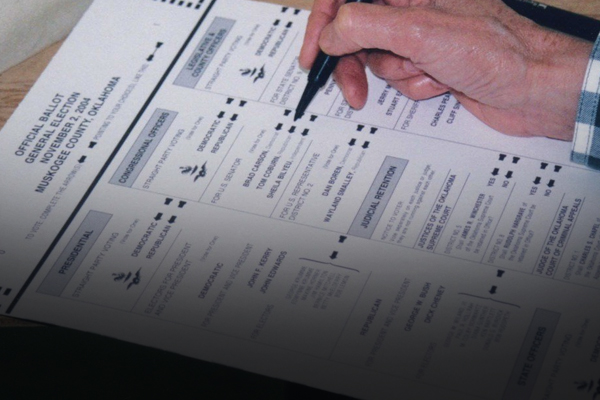
Every election cycle I inevitably hear someone bring up the same argument: “Religious people, Christians included, should not vote according to their religious convictions. It just seems wrong that a Christian would impose their beliefs on someone else who doesn’t share their religion.”
As Christians, can (or should) we vote according to our Christian beliefs?
This objection is not typically levied against non-believers. We may all disagree about what we should vote for, but religious people seldom tell the non-religious they shouldn’t vote based on their non-religious worldview. I know I personally would not expect non-believers to vote against their own convictions, so why do some non-believers think religious people should vote against theirs?
I think the issue has less to do with voting and more to do with the way we approach the nature of religious truth claims.
The idea that non-religious beliefs are worth acting (or voting) on but religious beliefs are not, assumes that religious truth claims are categorically different than and non-religious truth claims. As if religious claims are blindly subjective and non-religious claims are objectively verifiable.
However, this is not the approach taken by Jesus or the writers of the New Testament. The Bible consistently teaches that its truth claims – its claims about people, the world, how we ought to live, and what God wants from us – are objectively true. Jesus, for example, repeatedly pointed his listeners to the objective evidence of his miracles to authenticate his message. He also commissioned eyewitnesses (direct evidence) to tell the world about their observations. From a Christian perspective, there should be no categorical difference between religious truth claims and non-religious truth claims; both worldviews make objective claims about reality. The Bible consistently teaches that its truth claims - its claims about people, the world, how we ought to live, and what God wants from us - are objectively true. Share on X
Getting back to issues around the election: the nature of voting itself assumes the people voting will come from a variety of backgrounds and hold a variety of opinions. In fact, voting reveals our preferences and worldviews. There is no expectation of uniformity or complete agreement. The ballot box is a symbol and demonstration of our intellectual diversity.
As Christians, we should confidently vote according to our Christian beliefs. We hold this worldview because it is objectively true, and it describes the world the way we actually experience it. Every voter will vote based on his or her worldview, religious or otherwise. Let’s join the rest of America and vote based on our view of the world.
Detective Jimmy Wallace (J. Warner’s son) is a Police Investigator in Los Angeles County, a Christian Case Maker, host of the Incarnate Investigation Podcast and Incarnate Investigation Video Series (featured at ColdCaseChristianity.com).
Jimmy Wallace is a detective who holds a BA in Psychology (from UCLA) and an MA in Theology - Applied Apologetics (from Colorado Christian University).








































John Moore
October 8, 2020 at 5:12 pm
What does Christ say about using force to compel non-believers to act as though they believe? That’s the key question. Christians should certainly vote according to their Christian beliefs! But do Christian beliefs include using the police and the jail to punish non-believers?
For example, it’s a sin to commit homosexual acts. Should there also be a law to criminalize homosexual acts?
Many Christians think the law and the Bible should say the same thing. Other Christians might take a more pragmatic view and say we should allow sinners their freedom to sin, and we should just use our freedom of speech to urge sinners to repent. So which is it?
Is the purpose of government to make as many professing Christians as possible? Many Christians seem to think so. But other Christians might take the more pragmatic view and say the purpose of government is just to organize our society in a peaceful and orderly way to promote prosperity.
Which side are you on? Do you want to use the government to fight against your non-Christian, unrepentant neighbors, even if it disrupts our peaceful society? Or do you want to cooperate with non-Christians in building a peaceful, productive society, even if it means shaking hands with an unrepentant sinner?
David
October 9, 2020 at 9:12 pm
I think you are right on. We can get our Bible, then look for what each party stands for then vote according,